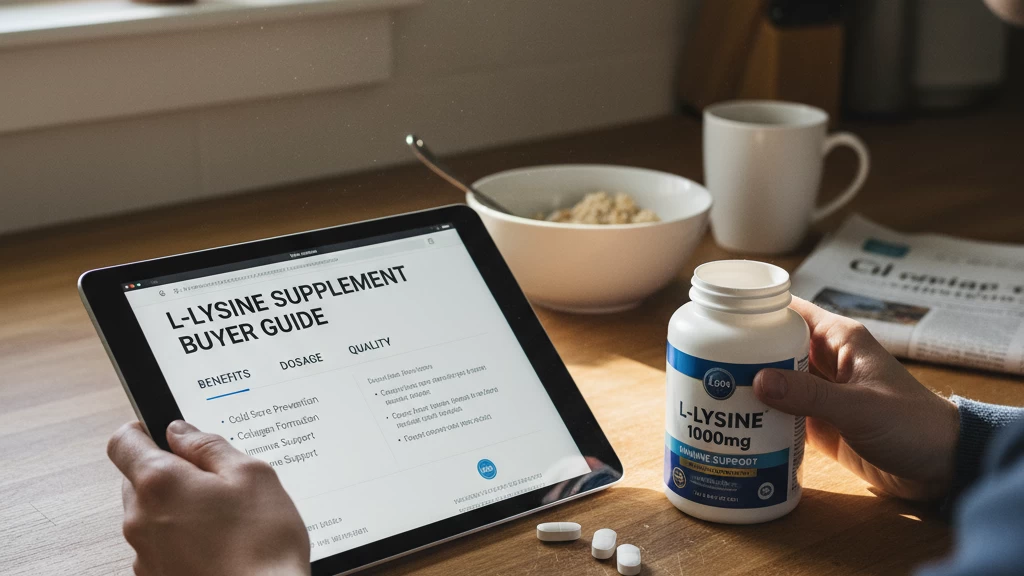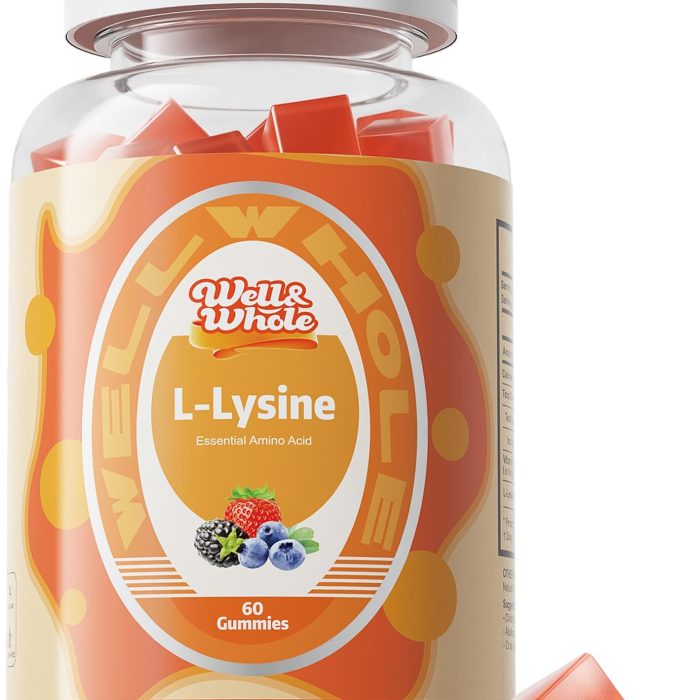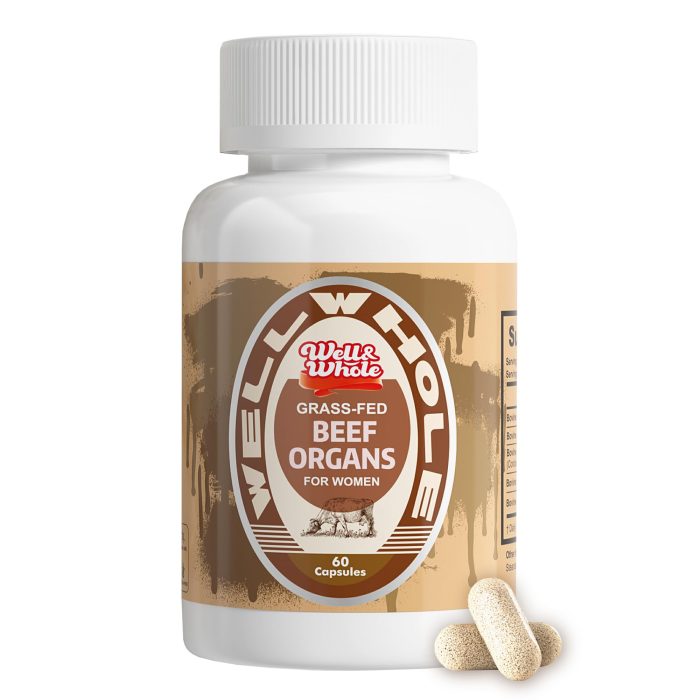What Exactly Is L-Lysine? The Science Behind This Building Block
L-lysine is an essential amino acid, meaning your body can’t make it — you have to get it from food or supplements. Think of it as a vital building block for proteins that keep you strong and healthy.
Core Biology: Where Lysine Fits In
L-lysine plays a key role in producing collagen and elastin, the proteins responsible for skin elasticity, wound healing, and tissue repair. It also supports energy metabolism, helping your body convert food into usable fuel, which is great for workouts and daily vitality.
Why It’s Essential
If your diet lacks sufficient protein — like in strict vegan or low-protein diets — you’re at risk of lysine deficiency. Without enough lysine, your body struggles with muscle repair, immune function, and collagen production, leading to slower healing and fatigue.
Everyday Impacts of L-Lysine
From sprains to cold sore flare-ups, lysine helps speed recovery by boosting collagen synthesis and supporting immune resilience. Plus, athletes often rely on lysine for quicker muscle repair and sustained energy during training.
In short, lysine isn’t just a protein piece; it’s a foundational nutrient that keeps your body running smoothly every day.
Top Health Benefits of L-Lysine: Backed by Research and Real Results
L-lysine stands out as an essential amino acid with a wide range of health benefits supported by science and user experiences. Here’s a quick breakdown of what it can do for you:
| Benefit | How It Helps | Quick Fact |
|---|---|---|
| Cold Sore Prevention | Reduces outbreak frequency by up to 50% | Supports antiviral defenses effectively |
| Bone & Calcium Support | Improves calcium absorption, fights osteoporosis | Helps maintain stronger bones as you age |
| Immune & Stress Resilience | Boosts immune response; aids serotonin regulation | Enhances mood and stress handling |
| Muscle Recovery & Athletic Edge | Speeds up protein synthesis for faster repair | Great for post-workout recovery |
| Additional Perks | Promotes wound healing, helps control blood pressure, possible anti-cancer benefits | Supports overall body repair and balance |
Research shows L-lysine’s antiviral properties are especially useful for managing cold sores, with users reporting fewer and less severe outbreaks. When it comes to bones, lysine helps your body absorb calcium better, a key step in preventing osteoporosis, especially important as we get older.
On the immunity front, L-lysine supports your body’s natural defenses and also plays a part in serotonin production, helping you stay calm under stress. For athletes and active people, it speeds muscle repair by enhancing protein synthesis, which means you bounce back faster after workouts.
Lastly, L-lysine has other perks like promoting quicker wound healing and assisting blood pressure regulation, with some studies even exploring its role in cancer prevention.
For those interested in boosting collagen production alongside L-lysine, pairing it with vitamin C-rich supplements like AMLS Bio Glutathione Supplement can offer added benefits, improving skin and joint health naturally.
How to Get More L-Lysine: Dietary Sources vs. Supplementation
When it comes to boosting your L-lysine levels, aiming for food first is always the best approach. Animal-based foods are naturally rich in lysine—think lean meats like chicken, turkey, and beef, plus fish, eggs, and dairy like cheese and yogurt. For a typical serving, about 3 ounces of chicken breast packs roughly 2.5 grams of lysine, easily covering much of your daily needs.
If you’re plant-based, don’t worry—there are good vegan lysine sources too. Beans (especially lentils and chickpeas), quinoa, pumpkin seeds, and soy products like tofu and tempeh are solid picks. Because plant-based lysine often comes with more fiber and other nutrients, they complement your diet well but might require larger portions to hit your target.
Daily Needs and Quick Calculator Tip
Experts generally recommend around 30 mg of lysine per pound of body weight daily. That means if you weigh 150 pounds, you’d need about 4.5 grams each day. For a handy estimate, multiply your weight (in pounds) by 0.03 grams to find your daily target.
When to Consider Supplementation
If you spot signs like slow wound healing, frequent cold sores, or you’re on a very low-protein diet, l lysine supplements can help fill the gap. Supplements come in capsules, powders, and popular lysine gummies, which many find more convenient and tastier.
Pro Tip: Boost Benefits with Vitamin C
For better collagen production—and to enhance lysine absorption—pair your l-lysine intake with vitamin C-rich foods like oranges, strawberries, or bell peppers. This combo works together to support skin, bone, and joint health effectively.
For those exploring supplements, detailed guidance on essential amino acids and quality options is available in this comprehensive essential amino acids supplement reviews resource.
Choosing and Using L-Lysine Supplements: A Practical Buyer’s Guide

When picking L-lysine supplements, you’ll find several forms—capsules, powders, and gummies—each with its own perks. Capsules are easy to take and usually have a straightforward dose, while powders mix well into drinks, perfect if you want flexible dosing. Gummies offer a tasty, convenient option, especially if you don’t like pills, but watch for added sugars.
Dosage Guidelines
Starting with around 500 mg per day is common for general health support, but doses can go up to 3,000 mg or more when targeting specific issues like cold sore prevention. For best absorption, take lysine on an empty stomach, about an hour before meals or two hours after. Splitting doses throughout the day can also help.
Spotlight on Quality
Look for supplements that use free-form L-lysine, which your body absorbs more easily. Third-party testing is a must to ensure purity and potency—trusted brands often highlight this on their labels. If you’re curious about real benefits, user reviews can be insightful, sharing stories about improved recovery times and fewer cold sore outbreaks.
For more detailed info on selecting quality lysine supplements and maximizing their benefits, check out this comprehensive guide on how to unlock the power of L-lysine for optimal health.
Potential Side Effects, Interactions, and Safety Essentials
L-lysine is generally safe for most people, but like any supplement, it can cause mild side effects. Some users might experience stomach upset or diarrhea, which usually ease off by adjusting the dose or taking lysine with food. To reduce discomfort, start with a lower dose and increase gradually.
In rare cases, high doses could put strain on the kidneys or contribute to gallstone risks, especially for those with pre-existing conditions. It’s a good idea to consult your healthcare provider if you have kidney issues or gallbladder problems before starting lysine supplements.
L-lysine interacts with other amino acids, particularly arginine. Since they compete for absorption, it’s important to maintain a balanced intake. Also, because lysine helps with calcium absorption, keep an eye on your calcium levels to avoid imbalances.
Safety-wise, lysine is well-tolerated at doses up to 6 grams per day, but moderation is key. Avoid exceeding recommended amounts to minimize risks and get the most benefit.
For a deeper dive into the benefits and safe use of lysine, check out this detailed guide on the key benefits of lysine supplementation.
Real-Life Applications: Integrating L-Lysine into Your Lifestyle
Adding L-lysine to your daily routine can be straightforward and highly effective. Here’s how to tailor it based on your lifestyle needs:
Vegan Meal Prep
For those on a plant-based diet, hitting your lysine target means focusing on lysine-rich options like quinoa, lentils, chickpeas, and pumpkin seeds. Combine these in meals like quinoa salads or lentil stews to ensure you get enough. Since plant sources might not have as much lysine as animal proteins, some vegans consider supplements to fill the gap.
Athlete Recovery Stack
If you’re working out regularly, L-lysine can speed up muscle repair by supporting protein synthesis. Pair it with vitamin C to enhance collagen production for joint and tendon health. Incorporating L-lysine gummies or capsules post-workout can give you that extra edge in recovery and energy.
Stress-Buster Routines
L-lysine supports serotonin modulation, which can help your body handle stress better. Taking it regularly, especially during high-pressure periods, might improve mood and immune resilience. Try combining it with calming activities and balanced nutrition for best results.
Myth Busting
- Does L-lysine cure herpes? While L-lysine doesn’t cure herpes, research shows it can reduce the frequency and severity of cold sore outbreaks.
- Is it safe for kids? Generally yes, but always check with a healthcare provider for the right dosage and form.
Long-Term Outlook
Consistent L-lysine intake supports overall wellness—from stronger bones and healthier skin to improved immune function. It’s a simple addition that fits well into most lifestyles and can contribute to long-term health benefits.
For practical ideas on using L-lysine supplements, explore trusted options with detailed benefits at understanding the advantages of L-lysine 500 mg, especially if you’re considering gummies or capsules for convenience.








